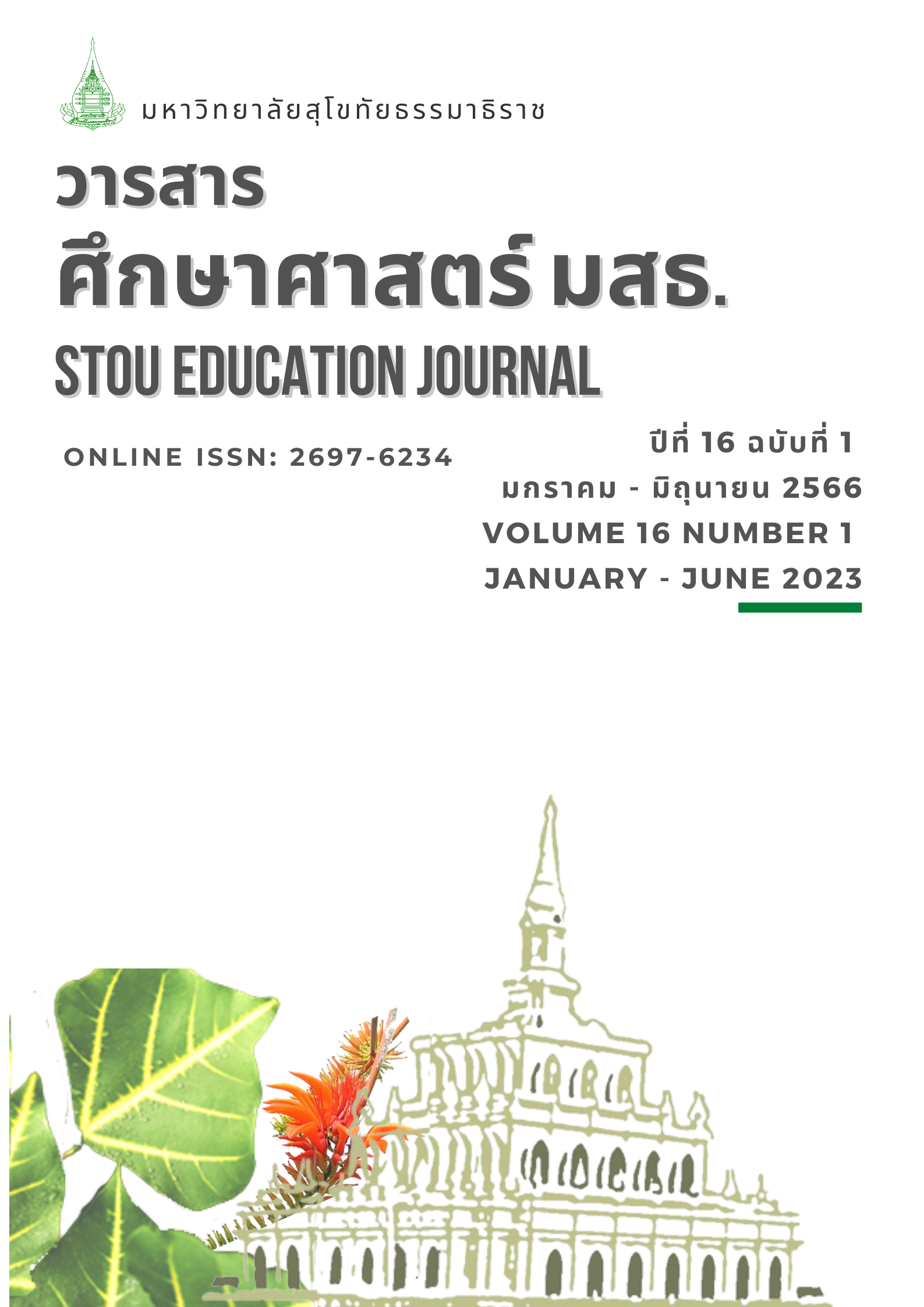A Development of an Entrepreneurship Enhancement Program for Junior High School Students Using Design Based Research
Main Article Content
Abstract
The purposes of this research were to 1) develop an entrepreneurship enhancement program for junior high school students and 2) study the results of entrepreneurship enhancement program for junior high school students. The sample was junior high school students obtained from stratified random sampling. The research procedure was divided into 3 phases, phase 1 analyzing teachers’ experiences on entrepreneurship enhancement and students’ experience on entrepreneurship, phase 2 designing and developing the program, and phase 3 implementing and study the results of the program. The data were analyzed by using descriptive statistics and dependent t-test. The research findings indicated that 1) the developed program consisted of principal, objective and lesson plans and 2) the results of implementing the program found that the post-implement students’ value in entrepreneurship, expectation in entrepreneurial abilities and entrepreneurship were significantly higher than the pre-implement at the .05 level of statistical significance.
Article Details
References
ชนัญญา สุขสมวัฒน์, สุวิมล ว่องวาณิช, และ ชยุตม์ ภิรมย์สมบัติ. (2563). แนวทางการจัดการเรียนการสอนเพื่อส่งเสริมความเป็นผู้ประกอบการของนักเรียน: คราวด์ซอร์สซิ่ง. วารสารอิเล็กทรอนิกส์ทางการศึกษา, 15(2), 1-14.
ทิพาภรณ์ โพธิ์ถวิล. (2559). หน่วยที่ 1 สภาพการณ์ของวัยรุ่น. ใน เอกสารการสอนชุดวิชา พัฒนาการวัยรุ่น หน่วยที่ 1-7 (น. 1-83). นนทบุรี: สาขาวิชามนุษยนิเวศศาสตร์ มหาวิทยาลัยสุโขทัยธรรมาธิราช.
สุวิมล ว่องวาณิช. (2563). การวิจัยการออกแบบทางการศึกษา. สำนักพิมพ์จุฬาลงกรณ์มหาวิทยาลัย.
สำนักงานคณะกรรมการการศึกษาขั้นพื้นฐาน กระทรวงศึกษาธิการ. (2551). ตัวชี้วัดและสาระการเรียนรู้แกนกลาง กลุ่มสาระการเรียนรู้การงานอาชีพและเทคโนโลยีตามหลักสูตรแกนกลางการศึกษาขั้นพื้นฐาน พุทธศักราช 2551. สำนักวิชาการและมาตรฐานการศึกษา.
สำนักงานคณะกรรมการการศึกษาขั้นพื้นฐาน กระทรวงศึกษาธิการ. (2561). มาตรฐานการศึกษาของชาติ พ.ศ. 2561. 21 เซ็นจูรี่.
Farani, A. Y., Pouya, M., Soleymani, A., & Hosseininia, G. (2011). How to enhance student’s entrepreneurial skills: An academia’s perspective. African Journal of Business Management, 6(11), 4250-4254.
Jones, B. D. (2018). Motivating students by design: Practical strategies for professors. CreateSpace.
Psilos, P., & Galloway, T. (2018). What works in entrepreneurship education and training programs for youth? USAID’s.
UNCTAD. (2015). United Nations Conference on Trade and Development: Policy guide on youth entrepreneurship.https://unctad.org/system/files/official-document/webdiaeed2015d1_en.pdf
UNDESA. (2020). Exploring youth entrepreneurship. https://sdgs.un.org/publications/exploring-youth-entrepreneurship-24572
Wigfield, A., & Eccles, J. S. (1992). The development of achievement task values: A theoretical analysis. Developmental Review, 12(3), 265–310.
Wigfield, A., & Eccles, J. S. (2000). Expectancy-value theory of achievement motivation. Contemporary Educational Psychology, 25(1), 68-81.


